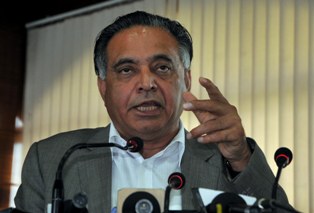Shimla: Phasing out plastic carry bags for a decade has marginally helped to contain urban litter but tourists unmindful of the sensitive environment continue to dump behind waste, so much so that a hydropower project on Beas River, more than once, had to be shut down because plastic waste had clogged one of the intakes.
Speaking at an environment awareness workshop on Sunday chief minister Prem Kumar Dhumal said, “upstream of Largi hydropower project are the towns of Kullu and Manali. The amount of plastic waste that comes down from these tourist towns has even forced a shutdown of this 126 MW power plant on Beas River.”
DR Sharma, who manages the power plant says, “because of incessant rains, last year, most of the waste along feeding streams, which included empty cold drink – water bottles and other plastics, were flushed into the main river and ended up clogging the cooling water channel of the plant.”
A mesh had to be installed to filter the water intake and pre-empt unscheduled shutdowns that resulted in heavy losses. Project engineers are said to have unclogged about 6000 tons of plastics to keep the plant operational.
“Mainly because of deficient rains, lesser plastic ended up in the plant mesh trap this year, said Sharma.
Expressing his concern, minister for environment JP Nadda says, “penalizing policies only remain effective till implementation is monitored but unless sensitivities about environment concerns are not aroused, it fails to become an inherent norm.”
Urban litter and choking of drainage systems both natural as well those laid out to channel flows had made lawmakers pass a law to ban use of recycled plastics in 1996, which was enforced in 1999.
Nadda says that small step taken to protect mountain ecology in Himachal spread the message across the country and many states have followed suit, mainly to protect urban drainage infrastructure that is threatened by plastics waste.
Moving beyond recycled plastics, the government earlier in the month banned use of all kinds of plastics for carry bag purposes.
“That may serve little purpose,” says Shivani Mahlotra, an environmentalist who runs awareness campaign out of Dharamshala. “The major problem is the plastic being pushed into the market by the beverage and food processing industry. Without a proper disposal system in place, most of it ends up in drainage channels, clogging even power plants,” she said.
With a 40,000 hotel bed capacity, Manali remains one of the most popular hill destinations with both domestic and international tourists.
Despite an environmental cess collected from all vehicles entering the town that does not even have a proper municipality, much of the daily waste disposal ends up in the Beas River.
As Editor, Ravinder Makhaik leads the team of media professionals at Hill Post.
In a career spanning over two decades through all formats of journalism in Electronic, Print and Online Media, he brings with him enough experience to steer this platform. He lives in Shimla.




We all know water bottles are wasteful and bad for the environment, yet their production is growing rapidly everywhere. Just 20 years ago the market for plastic water bottles was practically nonexistent, but today we produce billions of these completely unnecessary products. There can be only one sane response, plastic water bottles must be banned!
http://www.selfdestructivebastards.com/2009/10/water-bottle-manifesto.html
starying away from the issue i guess plastic bottles for once are doing something good. all around the world, especially india and china people are objecting the hydropower plants as being obsolete. this indeed is a nice strategy. put plastic bottles and shut the damn… himachal is going insanely obssesed with dams…do we actually need them …has the governemnt taken care of having one damn reviewed after its completion…is anyone questing how ist effecting the eco system…sly government is fooling its people by having more and more damns in name of develpoment. big dams big money. and since when was government not corrupt.